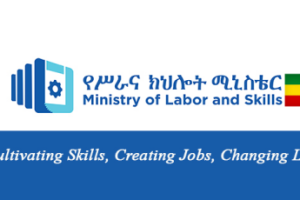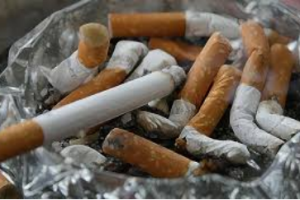In its deadly and cruel approach of waging war, the terrorist TPLF group has been caught repeatedly recruiting child soldiers. What is more excruciating is it administers the use of narcotic drugs to embolden and inspire the child soldiers in to fighting. This is likely to have a long term and multilateral impact on the overall situation of the country.
The use of drug with pleasant effects dates back to millennia in the human history. Drugs are used to stimulate the central nervous system. This causes changes in feelings, mood and thought. Numbness, insensibility, impassiveness, depression, drowsiness, lethargy, and stimulus are among the most common reasons for substance use. Drug use is one of the common behaviors considered as “negative” risk-taking by the WHO. It affirmed that adolescents and the youth are more vulnerable to such risk-taking behaviors. Consequently, they suffer from long term undesirable health effects. The TPLF junta uses drug to induce child soldiers in raiding, pillaging, looting, plundering and killing the poor rural people residing in and around their vicinity, locality and neighborhood.
A substantial use of drug among the youth is a global problem including developing countries with negative health, economic, and social effects. As T. Shegute pointed out, several factors including intense academic pressure, independence from family/guardian control, peer pressure, and the desire to experiment with new things in their life make the youth more vulnerable to substance use. Khat, alcohol, and cigarette are some of the commonly used substances among youth in Ethiopia including university students. There is also evidence indicating the use of illicit drugs such as hashish, cocaine, cannabis, sleeping pills, and “shisha,” which are introduced into the student community by the TPLF drug-pushers.
Khat is an indigenous plant with stimulant properties that is widely cultivated and used. Its addicts chew it fresh mostly in East African and some Middle East countries. It produces stimulant effects such as euphoria and excitement. Earlier studies indicated higher prevalence of its use among the youth in different parts of Ethiopia. They revealed the profile of its users by gender, age group, religion, marital status, and family occupation. Conflicting results were observed regarding the impact of Khat chewing on the academic achievement of students. The students initially believed that its use stimulated deeper understanding of their fields of studies. They lately discovered that it has nothing to do with academic achievement. In fact, it disturbed their style of life, causing sleeplessness due to strong stimulation of the nervous system. The TPLF junta uses such drug in the battle front to stimulate its child soldiers.
Alcohol is another most commonly used substance with multiple impacts on youth globally. A higher prevalence of alcohol use, binge drinking, and heavy alcohol use was reported among students. Although substance use is a known public health problem and a pressing issue in Ethiopia, its real extent and magnitude are not yet properly explored. The TPLF has deliberately encouraged the use of drugs among students at all levels, particularly in the universities. A research has indicated that about three-fourths of those who participated in the study used substances at least once. The junta encouraged its use in the educational institutions with the evil purpose of controlling the student behavior. While drugged, students imbibe the outdated communist policy of “revolutionary democracy” propagated by the TPLF in Ethiopia.
Some of the causes for drug addiction are roughly identified by researchers. These causes include loss of political power and access to money, death of parents or divorce of parents or loss of loved ones. The chance of lifetime alcohol use and drug abuse is higher among those who lost power, like the TPLF junta. Also students coming from a divorced family or those who lost one or both of their parents use alcohol. The studies also revealed that students of urban origin and students with anxiety symptoms have a higher chance of cigarette smoking for life. The lifetime exposure to illicit drugs is higher among the TPLF members. The youth coming from drug using junta family are exposed to drug use.
This is the use of illegal drugs or the use of prescription or over-the-counter medications in ways other than recommended or intended. It also includes intentional inhalation of household or industrial chemicals for their mind-altering effects. Marijuana and tobacco use and alcohol drinking are sometimes included in the definition of drug abuse. Chemical abuse and substance abuse are terms sometimes used “interchangeably” with the term drug abuse, or they may be used to refer to a combination of drug abuse and marijuana, tobacco or alcohol drinking. These drugs are used by the TPLF child soldiers to encourage them fight in a battle they know nothing about. Many of these drugs are also addictive, causing cravings and a continued desire to use them despite negative consequences.
According to studies child soldiers may drink alcohol, use marijuana, and cocaine if available. They may also abuse prescription drugs. Children who are forced to use drugs may take them initially out of “curiosity,” to feel good. The TPLF junta provided these drugs to its child soldiers before their mission to kill people and animals. These drugs can affect a number of different organs, and complications can result from damage to the brain or to other parts of the body. Other negative consequences often result from the effects drugs have on the children’s mind, as well as actions they may take while under their influence. Among the actions these child soldiers take is shooting and killing human and animals. Being hungry, they slaughter goats, sheep, or cows of the peasants and kill the remaining live animals.
The child soldiers affected by drug abuse are not treated in the battle front they are located in. Their addiction may be present whether there are coexisting health and psychological problems. Supervised withdrawal may be necessary if physical “symptoms” are common when the drug is stopped, but the child soldiers may not be treated at all. It is not possible to detoxify them. Medications may be used to decrease cravings for the drug. The effects of the drug medication or the “unpleasant” reactions if the drug is withdrawn are unknown. However the TPLF never cared if drug abuse can have serious, even life-threatening, complications, such as drug overdose, alcohol poisoning, trauma, and suicidal behavior on its child soldiers. It also uses drugs on thousands of reserve child soldiers snatched from their families by force.
It is absolutely necessary to seek immediate medical care for serious symptoms of the drug that threaten the lives of these child soldiers. Some of these symptoms include warning signs such as irrational or suicidal behavior, serious injury, respiratory or breathing problems, and rapid, slow or absent pulse. It also involves chest pain or tightness. Other indicators include persistent vomiting, cold, humid, sweaty, or hot, dry skin. It causes severe abdominal pain, seizure, or confusion or loss of consciousness for even a brief moment. In this situation, one has to seek prompt medical care if he/she has a problem with drugs. There is, however, a tendency on the part of the TPLF junta to neglect or ignore medical attention and precaution as the symptoms occur among its drugged child soldiers, who are the true Ethiopian progenies. This is an unbearable effect of the wrong battle the junta declared on Ethiopia.
Symptoms of drug abuse include those of intoxication and those related to unfulfilled responsibilities and the social consequences of drug use. Drug abuse can cause problems in interpersonal relationships, at home, on the job, and with the law enforcement agencies. Symptoms of drug abuse may include craving the drug despite difficulties obtaining it or wanting to quit it. It leads to deterioration of relationships with relatives, friends and colleagues. School or work performance decline, worsen or depreciate. The drug addicts face difficulty of finding a job after the end of the battle. They may disengage from drug-related activities, but face financial difficulties to engage in normal activities.
Drug addicts “reveal” high-risk sexual behavior. They engage in extremely emotional sexual behavior, conduct and manners. Also, they increasingly spend time thinking about obtaining, using, and recovering from the drug that drives them to risk engagements. They remain in a “vacuum” helpless, leaving aside all responsibilities unfulfilled. As a result, they confront legal problems, which they may not resolve. This leads them to look for higher dose drug to get the same effect as before. Addicts continue using drug to “avoid” its withdrawal symptoms. They continue using drugs before, during and after performing activities.
Life-threatening symptoms include irrational or suicidal behavior. Overdose symptoms indicate rapid or slow pulse and respiratory or breathing problems. Drug causes shortness of breath, difficulty breathing, labored breathing or wheezing. This leads to choking, abdominal pain and vomiting, and cool or hot skin. Drug induces sleepiness, chest pain, confusion or loss of consciousness for even a brief moment of trauma. Drug abusers feel bone deformity, burns, eye and other injuries. On the other hand, others continue using drugs despite undesirable consequences. The TPLF does not care about these life threating symptoms and consequences on child soldiers as long as they are actively used in the battle field.
Studies indicate that biological factors, such as genetics and the presence of other psychiatric disorders may play a role in the behavior of drug addicts. Also, environmental factors, such as peer pressure, history of abuse, and stress, and developmental factors, such as the timing of drug exposure are critical. A number of factors increase a person’s risk of abusing drugs. Not all people with risk factors will abuse drugs. Risk factors for drug abuse include anxiety disorders or depression, early drug use, lack of parental supervision, parental substance abuse. Other risk factors are personality disorders, such as antisocial behavior, physical or sexual abuse, poor family communication or bonding and stress.
The goals of drug abuse treatment are aimed at stopping drug-seeking and use, preventing complications of drug withdrawal, rehabilitation, maintaining abstinence, and preventing relapse. Treatment depends on the drug being abused, whether addiction is present, and whether there are coexisting health or psychological problems. In Ethiopia, there are only a few hospitals helping drug addicts. Private clinics are also trying to help these addicts. But the economic and social cost of treatment is exorbitant. Moreover, the treatment of drug abuse by child soldiers is often an extended process involving families. Returnee child soldiers of the TPLF junta, for example, will be dislocated from society. They become burdens to their families and relatives.
Behavioral therapists work on thought patterns and behavior of the drug addict. They conduct family therapy to help the family understand the problem and to avoid drug use. The cost of medications to lower cravings and counteract drug effects is immense. The effort to reduce unpleasant side effects of a drug is a difficult task. Motivational incentives to reinforce abstinence are also of the essence. The Ethiopian youth should be incentivized to abstain from “drug abuse” with the help of concerned government agencies and communities.
BY GETACHEW MINAS
ETHIOPIAN HERALD 29 SEPTEMBER 2021





